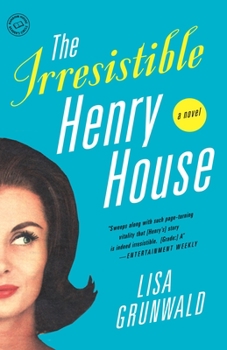The Irresistible Henry House
Select Format
Select Condition 
Book Overview
In mid-20th-century America, a home economics program at a prominent university uses real babies to teach mothering skills. For a young man raised in these unlikely circumstances, finding real love... This description may be from another edition of this product.
Format:Paperback
Language:English
ISBN:0812973224
ISBN13:9780812973228
Release Date:August 2011
Publisher:Random House Trade
Length:448 Pages
Weight:0.80 lbs.
Dimensions:1.0" x 5.3" x 8.0"













